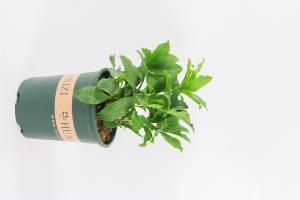Will Pool Water Hurt Plants
Introduction
Many gardeners are concerned about the impact that pool water can have on the health of their plants. While pools can be a great source of recreation and relaxation, they can also pose a threat to the surrounding environment if not properly maintained. In this article, we will explore whether pool water can hurt plants and what steps you can take to protect your garden if you have a pool.
The Impact of Chlorine on Plants
One of the main concerns that gardeners have about pool water is the chlorine content. Chlorine is added to pool water to disinfect it and keep it safe for swimmers. However, it can have a negative impact on plants. Chlorine can break down plant cell walls and damage chlorophyll, which is essential for photosynthesis. Plants that are exposed to high levels of chlorine may show signs of leaf scorch or discoloration.
Other Chemicals in Pool Water
Chlorine is not the only chemical that can be harmful to plants. In addition to chlorine, pool water may contain a range of other chemicals, such as algaecides, clarifiers, and pH balancers. While these chemicals may be safe for swimmers, they can be toxic to plants if they are not properly diluted or removed from the water. For example, algaecides can contain copper, which can be toxic to plants in high amounts.
How to Minimize the Impact of Pool Water on Plants
If you have a pool and are concerned about its impact on your garden, there are several steps you can take to minimize any potential harm. One of the simplest ways to protect your plants is to avoid splashing pool water onto them. When you drain your pool, be sure to direct the water away from your garden and any sensitive plants. Additionally, you can dilute pool water before using it on your plants by mixing it with fresh water.
Another option is to use a pool cover when your pool is not in use. A pool cover can help to reduce the amount of water that evaporates from your pool, which in turn means that you will have to add less fresh water and chemicals to keep your pool balanced. By reducing the amount of chemicals you use, you can also reduce the impact on your plants. Additionally, using a pool cover can help to prevent debris from entering your pool, which can be harmful to both swimmers and plants.
Conclusion
In conclusion, pool water can be harmful to plants if it contains high levels of chlorine or other chemicals. However, there are several steps you can take to minimize any potential harm, such as avoiding splashing pool water onto your plants, diluting pool water before using it, and using a pool cover to reduce chemical use and prevent debris from entering your pool. By taking these steps, you can enjoy your pool and your garden without worrying about any negative impacts.

 how many times do yo...
how many times do yo... how many planted tre...
how many planted tre... how many pine trees ...
how many pine trees ... how many pecan trees...
how many pecan trees... how many plants comp...
how many plants comp... how many plants can ...
how many plants can ... how many plants and ...
how many plants and ... how many pepper plan...
how many pepper plan...
































